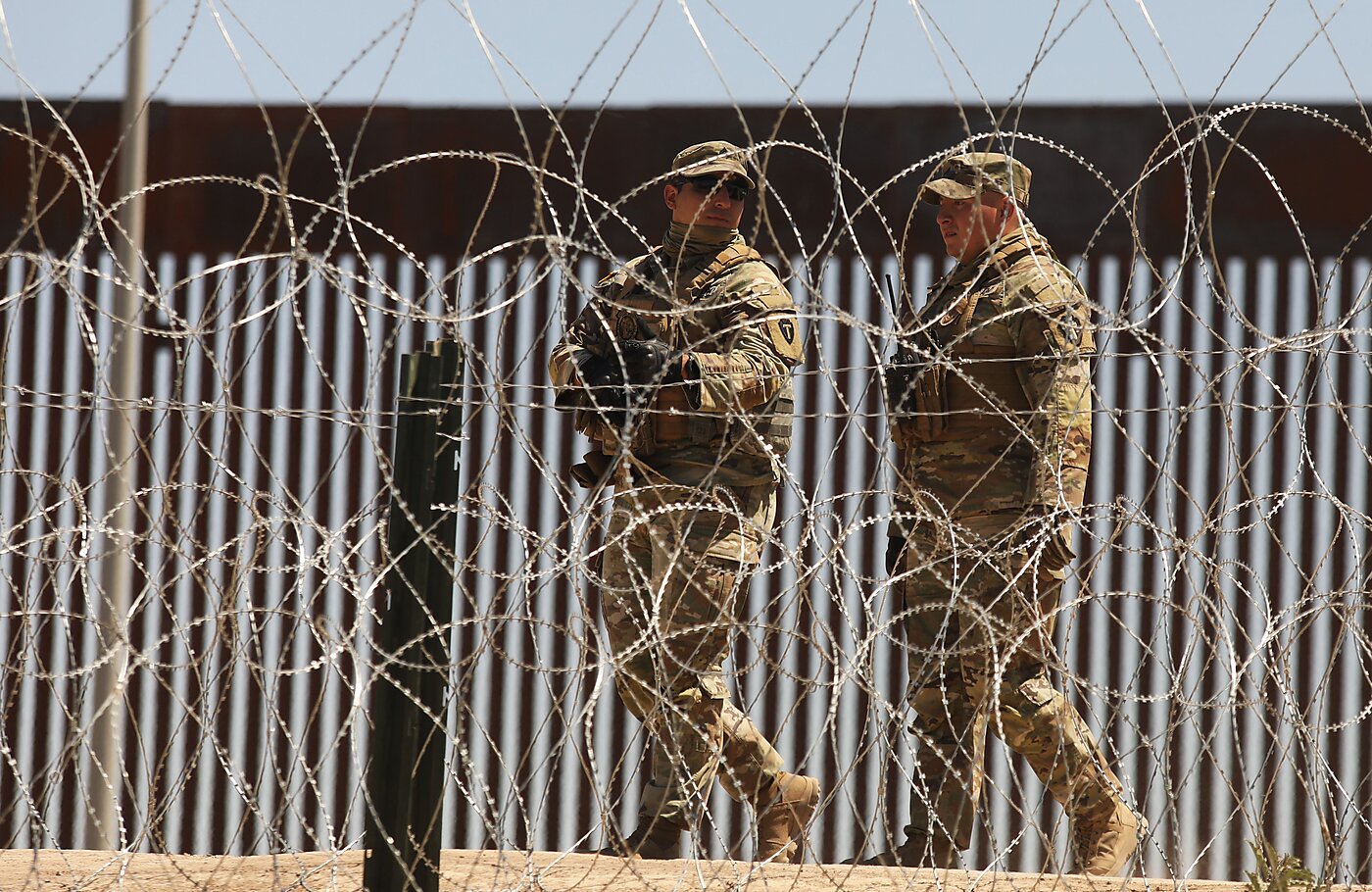Friday afternoon, Daniel Raisbeck and I published a longish article in Foreign Policy magazine throwing cold water on the idea of using the U.S. military to counter fentanyl.
The piece responds to the growing chorus of calls among GOP presidential candidates — the top three candidates in the polls have all endorsed using the U.S. military against Mexican cartels — as well as to the recent statement from Rep. Dan Crenshaw, the chair of a new Congressional Task Force for Combating Mexican Drug Cartels.
Crenshaw, who went to high school in Colombia, announced that “Colombia is the model” for what we should do in Mexico. In Crenshaw’s view:
“We need to somehow figure out diplomatically how to make this Mexico’s idea. That they’re asking for our military support, such as close air support, such as an AC-130 gunship overhead while they’re prosecuting a target and surrounded by sicarios.”
Crenshaw is correct that it would be a huge change if the Mexican government were to ask for close air support from the U.S. military in its own counterdrug operations. But there is no sign that such a political change is on or even over the horizon.
As Daniel and I point out, the larger problem with the Colombia analogy is that the United States initially got involved in Colombia because of the enormous flows of cocaine coming into the United States from Colombia. But our involvement did absolutely nothing to reduce those flows of cocaine into the United States:
“… cocaine prices in the United States consistently declined in the 1980s, and then remained relatively flat throughout the 1990s. The idea of attacking the drug supply at the source relies on the idea that interdiction will reduce availability and drive prices up, limiting consumption and negative consequences at home. If price is not even increasing, that is proof positive that a supply-side model is not working.”
You don’t have to take our word for it: You can check the U.S. Office of National Drug Control Policy’s own data (the below chart shows the expected price of a pure gram based on different quantities purchased) from a 2008 study:
This chart may be many things, but it is not a “U.S. counterdrug policy in Colombia worked” story.
Daniel contributed a tremendous amount of detail regarding the progress that Colombia made with U.S. assistance — Crenshaw is correct in saying that Colombia is not suffering from the degree of drug war violence that it was in 1993. But its homicide rate is roughly equivalent to Mexico’s today, which is as much an alarm bell about Mexico as it is consolation about Colombia. And in the latter country, there are some alarming trends happening today:
“According to the International Committee of the Red Cross, seven different armed conflicts are now taking place in Colombia (an increase from six in 2022)…. Although each of the unofficial armed actors takes part in illegal mining, extortion, and other criminal activities, their main source of financing — and the main source of the conflicts among them — is the cocaine trade. The major difference between the situation now and that of the 1990s is that no single group enjoys a monopoly over the drug trade while waging an all-out war against the state, as the FARC then did. Instead, a multitude of armed actors fight both the state and one another over strategic coca-growing areas and export routes.”
The Foreign Policy piece raises a number of other vexing realities, including the extent to which fentanyl is even harder to interdict than cocaine was and how U.S. military involvement would likely deepen the ongoing militarization of Mexico.
But since Crenshaw invoked the Netflix series Narcos as an authority for his story about Colombia, we mentioned the grim opening of the subsequent Narcos series, set in Mexico, as a cautionary note about getting too theatrical, something the congressman has done before. Our piece concludes:
“The first episode [of the Mexico series] sets the scene quite clearly, with DEA agent Walt Breslin growling over a spliced cut of grim drug war clips:
“I’m going to tell you a story, but I’ll be honest: It doesn’t have a happy ending. In fact, it doesn’t have an ending at all. … It’s about … a war. … A drug war. The kind that’s easy to forget is happening, until you realize that in the last 30 years in Mexico it’s killed half a million people —and counting. … I can’t tell you how the drug war ends. Man, I can’t even tell you if it ends.”
Crenshaw and the leading Republican candidates for president want you to believe that they have a plan for how the drug war in Mexico ends.
Ask yourself: Should you believe them?
Please give the article a read.


